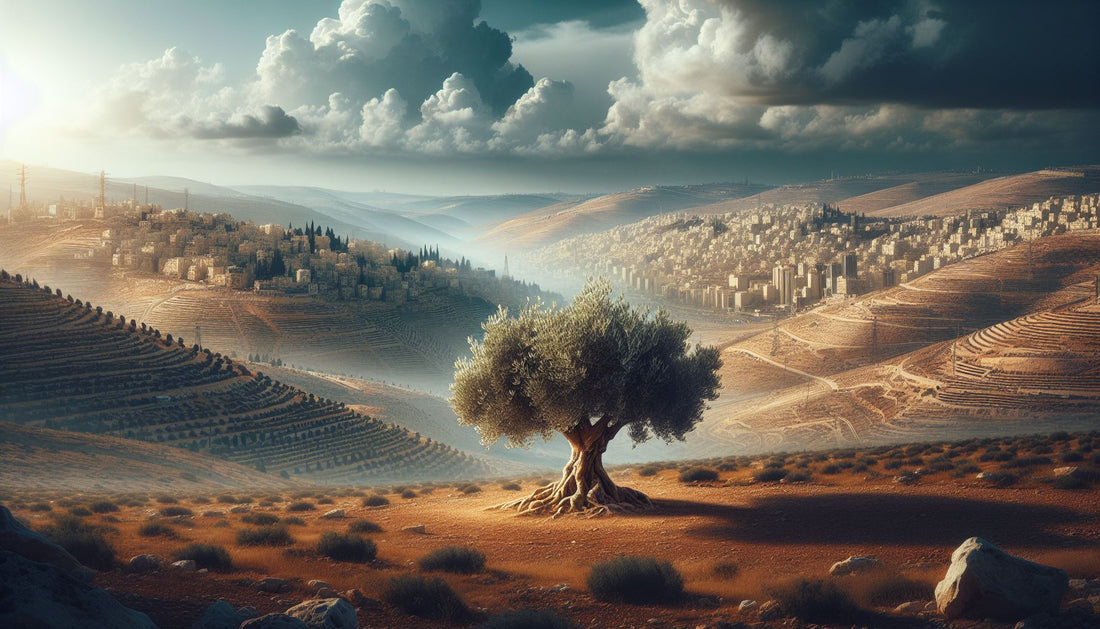
The Olive Tree: Unveiling Palestine’s Rich Heritage and Resilience
Share
An Emblem of Palestine’s Rich Heritage
Introduction
The olive tree, deeply woven into the fabric of Palestinian history, has been a part of the region’s agriculture for over four millennia. It stands as one of the most enduring emblems of Palestine, so much so that it has been immortalized in the works of renowned Palestinian poet Mahmoud Darwish.
The Olive Tree and Palestine
The practice of olive cultivation traces its roots back to the fertile, hilly terrains of the Galilee in historic Palestine, around 7,000 years ago. Generations of Palestinians have lovingly tended to and harvested olives, which have become an integral part of Palestinian land, culture, and identity. The olive tree thrives mainly in the Mediterranean Basin, from Portugal to the Levant. In Palestine, these trees are predominantly found in the Central Highlands of the West Bank, and some very old one too are found in Gaza, blessed with nutrient-rich soil.
The Olive Tree: A Testament to Resilience
The olive tree in Palestine holds significant economic, cultural, social, and national value. It exemplifies the Palestinian connection to their land – olive trees withstand harsh conditions of drought and poor soil, remaining firmly rooted in their place. Numerous Palestinian families have inherited olive trees over many generations, mirroring the enduring Palestinian history. Almost half of the land in the West Bank and Gaza Strip (48%) is adorned with olive trees.
The Olive Harvest
Every year in October, families come together to harvest the olive trees, assisting each other in this process (known as “al Ouna”, meaning help). They take pride in this tradition, remembering their ancestors who cared for these trees before them. The olive fruit forms the income of 80,000 Palestinian families. The majority of the olive harvest (90%) is used for oil production, while the remainder (10%) is used for making olive soap and pickles.
The olive tree, a symbol of peace, prosperity, and hope, is deeply rooted in the Palestinian landscape. It not only provides an economic lifeline for more than 80,000 families that cultivate them in the West Bank, but also serves as a symbol of steadfastness and political resistance as olive trees that are thousands of years old connect the Palestinian people to their land. The olive tree stands tall in the Palestinian landscape, not only as an agricultural staple but as a symbol of identity, heritage, and the indomitable spirit of the Palestinian people.
Through your backpack design, you’re not just carrying a bag, but a piece of history, a symbol of resilience, and a testament to the enduring spirit of the Palestinian people.

